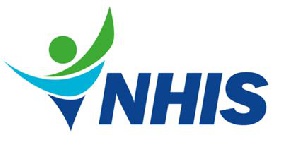Regional News of Saturday, 5 July 2014
Source: The Chronicle
Residents of North Tongu happy with NHIS
The North Tongu District National Health Insurance Scheme (NHIS) has been described by clients as one of the best in the region, as beneficiaries of the scheme explain that the professional competence of the staff, coupled with sound human relations with the people, has distinguished them from others.
They explained that initially, they did not understand the NHIS concept, but due to the hard work and dedication to duty by the staff, who regularly visit them in their communities to educate them, made it possible for most of them to appreciate the value of the scheme.
Speaking to the Volta File at Adidome Hospital, the valid card holders of the scheme said as a result of the intensive education on the scheme, most of them voluntarily visit the offices of the NHIS at Adidome to renew their cards whenever they expire, and boldly visit the hospitals in times of sickness – Adidome and Battor hospitals – without any difficulty.
They said since they registered under the scheme, they had seen significant improvement in their lives, because, apart from the stress they normally go through before getting access to health care facilities was a thing of the past. He further said that it had made life better for them, and even though there was general hardship, monies they could have used, as experienced in the cash and carry system, were being used to improve their standard of living.
The card holders of the scheme further explained that even though the name of the Scheme is “North Tongu Health Insurance Scheme”, it is the same scheme that serves the Central Tongu District, and appealed to the authorities to institute an award scheme to reward hard working staff like those at the North Tongu Health Insurance Scheme, to motivate others to work harder.
The North Tongu NHIS District Manager, Mr. Jonathan Tsewor, who admitted the hard work of the staff, pointed out that such recognition by the people was not without challenges,. He bemoaned a challenge where the two districts had most of the communities in remote areas, where access roads were very bad, particularly during the rainy season, and the personnel found it extremely difficult to reach them.
Mr. Tsewor disclosed that as a result of the poor nature of roads, personnel of the scheme, determined to achieve success, walk through floods as a result of heavy rains through which no vehicle or motorbikes could pass to some of the communities.
He disclosed that the scheme recorded a total registration of 6,862 from January to May, 2014, and had 26,065 cards renewed within the same period, whilst the total number of active membership stands at 87,062.
He revealed that the scheme had exceeded its set target for the first quarter of the year. The Manager said the hard work of the staff had paid off, because they were able to record 95 percent of people in the two districts. He said it was on record that the scheme did not owe any of the service providers in the districts.
Mr. Tsewor used the opportunity and appealed to institutions and non-governmental organisations (NGOs) working in the region and outside it to extend their activities to the health sector by supporting the NHIS at the District level. He also appealed for assistance in procuring additional vehicles to complement their only pickup to augment outreach programmes.
Mr. Tsewor also appealed to traditional rulers to use their authority and influence to urge their subjects to register under the scheme, to enable them derive the needed benefit, as well as youth groups to compel their members to embrace the NHIS concept. He said one major area that the scheme had paid special attention to was the free registration of the aged and destitute, and special treatment given them.
The Administrator of the Adidome Hospital, Mr. Jacobs Amegatsey, said the hospital recorded 96 percent out of the total number of people who attended the facility, and commended the staff and management for their efforts.
Mr. Amegatsey explained that the hospital, however, recorded 40 percent of client who visit the hospital as those engaged in the cash and carry system, which posed a major problem to the administration, because these category of people found it difficult to pay their bills after treatment, and some who were treated and discharged still owe the facility various sums of money.
According to the Administrator the health insurance system had proved to be good, because after card bearing members of the Scheme attend hospital and are treated, the management of the Scheme pays the amount involved.
Mr. Amegatsey disclosed that currently 17 clients involved in cash and carry at the hospital could not pay and left a total debt of 1,456. He disclosed that some of the people were actually not in a position to pay the cost involved for treatment, and stressed the need for all to embrace the NHIS system to enable them visit the facilities anytime they fall sick.











